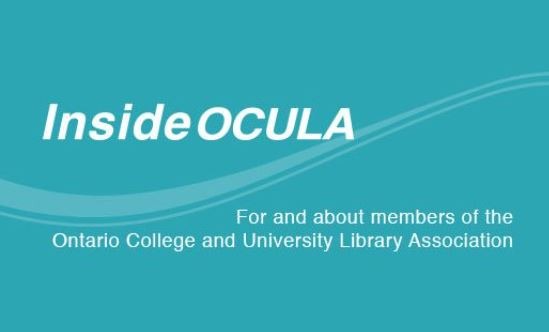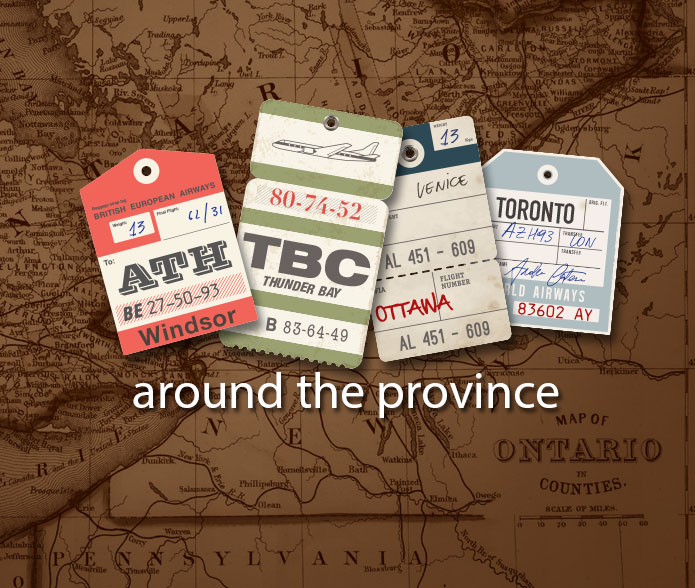Learn about a librarian’s research into 2SLGBTQ+ Libraries and Archives, preserving queer history, and current activism efforts.

OCULA President’s Message – Fall 2024

Hello OCULA colleagues!
Happy Fall! I would like to wish you all a happy and productive start to the new school year. I know how busy and exhausting the fall semester can be! I wanted to take a few moments to introduce myself and talk a little bit about what’s happening at OCULA.
My name is Matt and I’m your 2024 OCULA President.
Let me tell you how I got here. In 2012, I made the (not so difficult) decision to leave a PhD and start at the iSchool at the University of Toronto, where I was hired by the University of Toronto Archives (UTARMS) as a student librarian/archivist. The iSchool and UTARMS helped me realize that academic librarianship was my future. After graduation, I started at George Brown College as a part-time reference and instruction librarian, and later became the liaison for Business and Design. At the same time, I also started a second job as a part-time business librarian at York University’s Brofman Business Library. Between those two jobs, I barely spent time at home with my husband, but I did get to spend a lot of time on the TTC!
Then in 2018, I was offered a liaison librarian position at Wilfrid Laurier University, working with Business, Economics, and Sociology. This led to a whole new change as my husband and I moved to Kitchener/Waterloo.
A year later, we also adopted our dog, Scarlett, but that’s a story for another time.
Change and flexibility have been threads throughout my career and life and have led me to find passion and fulfillment in my work – especially where equity, diversity, and inclusion are concerned. I came out at 18 and have always been very active in the 2SLGBTQI+ community, which sparked my life long commitment to equity work. In fact, my work in EDI contributed to receiving the 2021-2022 Award of Distinction in Academic Librarianship through the Ontario Confederation of University Faculty Associations.
OLA is a part of who I am as a Librarian. Working in academic libraries for nearly a decade has given me a deep understanding of college and university libraries in Ontario. My work with OLA, including five years planning the Super Conference, has broadened that understanding to include all libraries. So, when I was asked if I wanted to be nominated as the OCULA Vice-President/President-elect, I said yes without a moment’s hesitation. This was no small decision, as I greatly value the work that OLA and OCULA does for libraries across Ontario and Canada. My priority as President has been to continue the work OLA does to raise awareness to those issues impacting our institutions on a daily basis.
In May, I had the honour of presenting OCULA’s spring conference, Actionable Allyship in Academic Libraries, where we spent the day engaged in conversation and discourse around EDI efforts at all levels of the academic library. We heard from EDI practitioners, library workers about their own initiatives, and many library workers with lived experience to help us form a solid understanding of why actionable allyship is so important.
I am proud of the work that the OCULA EDI Community of Practice has contributed to our profession. This group brings academic librarians together in dialogue on a range of EDI issues impacting our libraries, practice, and lives. Thank you to Ben Walsh and Mikayla Redden for spearheading this initiative and making it such a thriving community.
As OCULA President, I wanted to ensure our voices continue to be heard across OLA, and I am pleased to say that this aim has informed our work on the next OLA Strategic Plan. We’ve highlighted the unique challenges faced by academic libraries, ensuring those conversations happen at all levels of our profession. For example: the continued pressure to perform above and beyond while enduring tight financial restrictions, the questions about the role of AI in academia and our profession, and the continued prioritization of EDI and decolonization within our libraries.
Finally, I consider it essential that academic librarians continue to advocate and champion for our colleagues across all sectors. We must work to save school libraries by lending our voices to that fight and I encourage all of you to sign the OLA petition that will send a clear message to the Ontario Government that school libraries cannot be sacrificed. And we must continue to champion the efforts of all libraries to act as safe spaces for the 2SLGBTQI+ communities by standing up against censorship and calls to silence trans or drag voices.
I am so fortunate to work with such an incredible group of library workers on the OCULA council this year and I am proud of the work we have already done, as well as all the work still yet to come.
I hope you all will find inspiration in the work that OCULA has done, and will continue to do. And I invite you to get in touch if you ever want to talk about how OCULA can better serve you, or the many initiatives OCULA and OLA do to work for you.
Matt Rohweder is a Liaison Librarian and the Interim Accessibility Coordinator at Wilfrid Laurier University Library, and the 2024 OCULA President.


